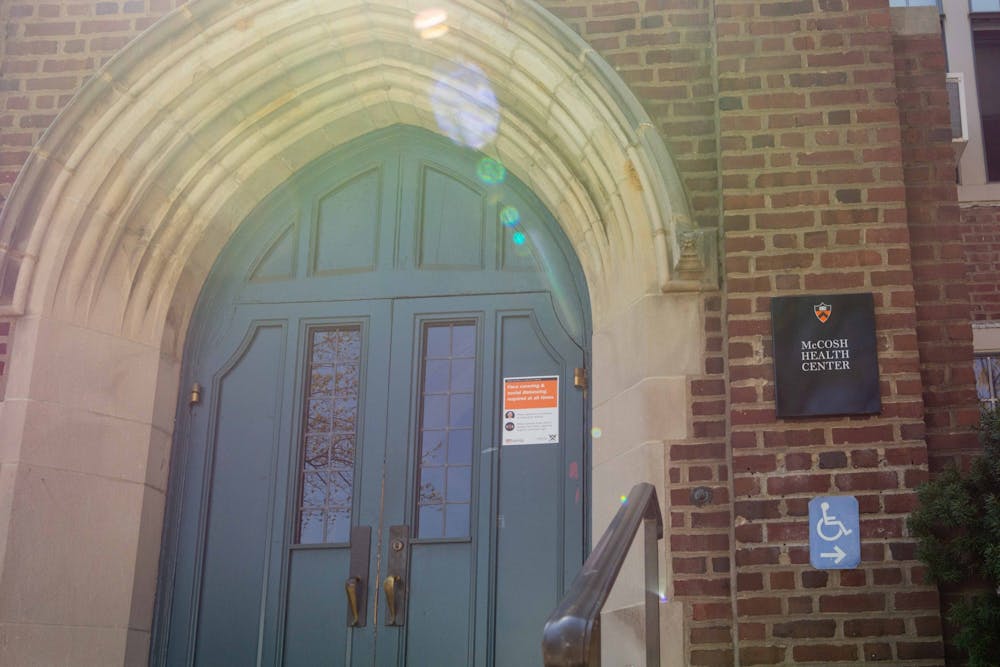So far, about 25 students have been diagnosed with pneumonia this semester by University Health Services (UHS), according to University Spokesperson Jennifer Morrill. Morrill wrote that this is an increase from the number of cases in Fall 2023, which were “in the teens” when “UHS was already seeing an increase in pneumonia diagnoses.”
An increase in pneumonia diagnoses on a national scale has been attributed to a type of bacteria known as Mycoplasma pneumoniae (M. pneumoniae), according to the Center for Disease Control (CDC) and the NJ Department of Health. Morrill explained that “healthcare providers in the community around our campus have experienced [a] similar increase for this particular bacteria, and this likely explains, at least in part, the increase in cases on campus.”
Additionally, pneumonia cases are appearing earlier in the season than usual since the COVID-19 pandemic, according to Morrill. She wrote that “some theories suggest this rise and shift in seasonality may be due to changes in immunity and patterns of infection spread post-COVID.”
Many Princeton students who have been diagnosed with pneumonia this semester became sick during, or just after, midterms week, causing disruption to both examination and fall break plans. While “UHS is not aware of any Princeton students that have been admitted to the hospital this year for pneumonia,” it is not uncommon for ill students to stay in the McCosh Infirmary if they would have to share sleeping spaces with roommates otherwise.
For Paige Ryan ’25, the biggest issue with having pneumonia on campus was actually getting diagnosed. In an interview with The Daily Princetonian she explained that she “had to sort of insist” on getting an appointment with McCosh. While on the phone with UHS, Ryan was told to call back the following day. She told the ‘Prince,’ “I was like, ‘I really think that this is urgent,’ and they relented.”
Even after getting an appointment, Ryan ended up waiting “30 to 45 minutes” in the McCosh waiting room to be seen, then had to reiterate that she felt something was wrong before she was able to get an X-ray.
Morrill explained, “if pneumonia is suspected, a chest X-ray is ordered. X-rays are available on-site [at McCosh] without an appointment and at no cost.”
Ryan added, “when they diagnosed me with pneumonia at McCosh, they did mention that they’d been seeing a ton of pneumonia cases in students.”
Dean Miller ’28 was diagnosed with pneumonia on Oct. 4, and stayed in the infirmary until Oct. 10. Miller reported that he initially had a high fever, and was given fever-reducing medication while staying in the infirmary.
Achilleas Koukas ’28, however, did not have to stay in the infirmary during fall break after being diagnosed with pneumonia. He said “the difficult thing was that every night, [he] had a fever.”
Koukas is a contributing News writer for the ‘Prince.’
In an interview with the ‘Prince,’ Miller explained that most of his midterms were postponed or canceled due to his illness, though for PHY 105: Advanced Physics (Mechanics) he “had to make up [the exam] before the break… I got out on Thursday, and I had to make it up on Friday.”

There is not a University-wide policy for illness during midterms week, unlike during the final examination period. Morrill explained that “the timing and details of midterms are determined by individual instructors.” As a result, decisions regarding rescheduling midterms due to illness depends on individual course policy.
For Jacob Nenow ’28, pneumonia restricted his fall break plans. As a member of the Princeton Cross Country team, Nenow was unable to train or race during the break. He told the ‘Prince’ that his parents visited “to watch [him] race that weekend,” but ended up taking care of him instead.
Miller addressed his time in the infirmary, saying that “it was actually pretty great.” He added that “the nurses are very kind” but noted some difficulties with the food options.
He told the ‘Prince,’ “they always had soup, but after about 20 cans of Campbell’s tomato soup, you’re pretty souped out.” Miller explained that, “normally, they’ll go pick up Frist food for you, but for some reason, Frist was closed or something for a couple of days.”
According to Morrill, the meal options in the infirmary are “designed to supply patients with the food they are able to tolerate or what is advisable to consume in order not to exacerbate their illness.” This includes solid food options from Frist Campus Center at no cost to the student, or from the Center for Jewish Life. The infirmary itself “offers bagels, yogurt, oatmeal, cold cereal, and soup,” as well as a liquid diet for patients who cannot tolerate solid foods.
Morrill added that “if students wish to order through Uber Eats or other such services, rather than utilize the options described above, staff coordinate the food delivery.”
Miller told the ‘Prince’ that he ordered through Uber Eats a number of times, at his own expense, as he was unable to obtain food from Frist while in the infirmary. “It was expensive … I probably, in total, spent over $100 on Uber Eats.”
Morrill wrote that “students with conditions like asthma, diabetes, or immunosuppression, as well as those who use tobacco are advised to get the pneumococcal vaccine to protect against common bacterial causes of pneumonia.” The flu and pneumococcal vaccines are available at McCosh, and the most recent COVID-19 vaccination can be obtained at local pharmacies.
Victoria Davies is an assistant News editor for the ‘Prince’ who covers University operations.
Please send any corrections to corrections[at]dailyprincetonian.com.









